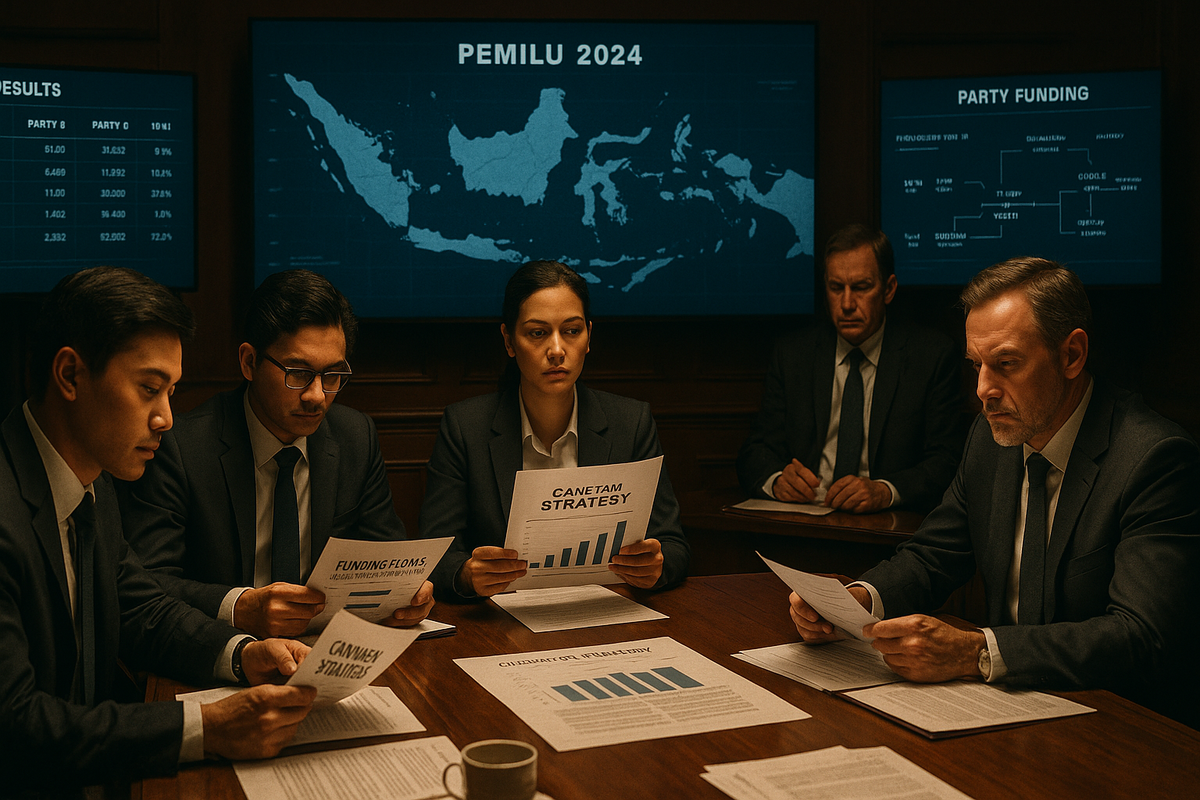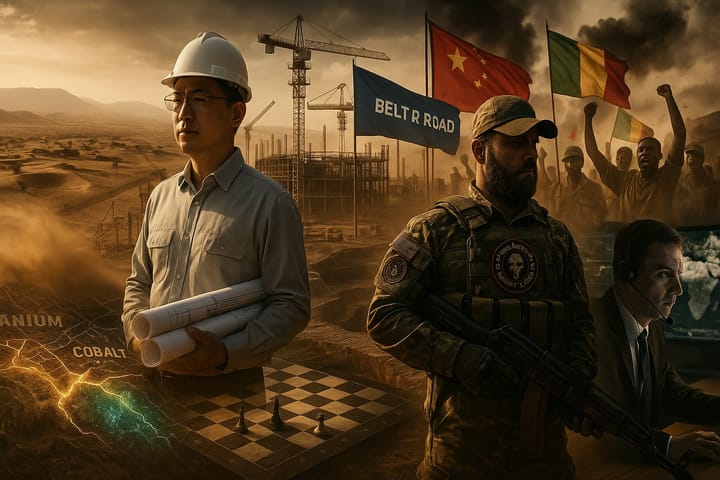Major Political Donors and Their Influence on Public Policy in Indonesia
Detailed report on Indonesia’s top political donors in the 2019 election and how they influenced public policy, appointments, and regulations.

Political financing is a crucial aspect of elections in Indonesia. The sources of campaign funds whether from individuals, groups, corporations, or political parties significantly determine the campaigning capacity of election participants. Official data on campaign donations are usually reported to the General Elections Commission (KPU) through the Campaign Contribution Receipt Report (LPSDK) and the Campaign Fund Usage Report (LPPDK). Furthermore, the Wealth Report of State Officials (LHKPN) can provide insights into self-funding capabilities. Independent institutions like Indonesia Corruption Watch (ICW) monitor transparency and potential conflicts of interest in campaign funding.
This report presents the latest information on major donors to political parties and candidates in Indonesia, especially during the most recent elections (2019). It includes data from official reports (KPU, LHKPN) and findings from independent observers (ICW), identifying the largest donors, the amount of their contributions, and the recipients. It also analyzes how these donations influenced public policy after the candidates took office, highlighting signs of conflict of interest, regulatory influence, and economic or investment policies benefiting specific donors.
Major Donors in the 2019 General Elections
Presidential Campaign Donors
Candidate Pair 01 (Joko Widodo – Ma’ruf Amin):
- The largest donors for the Jokowi–Ma’ruf campaign came from two entities: "Golfers Association TBIG" and "Golfers Association TRG." According to ICW, these two entities contributed IDR 19.7 billion and IDR 18.2 billion respectively. The combined contribution of IDR 37.9 billion accounted for 86% of the total campaign fund received by the Jokowi–Ma’ruf team as of January 1, 2019. ICW suspects that these entities are associated with PT Tower Bersama Infrastructure Tbk and PT Teknologi Riset Global Investama—both of which are linked to Sakti Wahyu Trenggono, Treasurer of the National Campaign Team.
Candidate Pair 02 (Prabowo Subianto – Sandiaga Uno):
- Unlike Candidate Pair 01, this campaign was predominantly self-funded. The official reports to KPU recorded a total of IDR 54 billion in campaign funds, with 70% from Sandiaga Uno and 30% from Prabowo Subianto. This indicates Sandiaga contributed around IDR 37–38 billion and Prabowo around IDR 16 billion. As per his 2018 LHKPN report, Sandiaga’s net worth exceeded IDR 5 trillion, making him the largest individual donor in the presidential race.
Other Donors to Candidate Pair 01:
- Besides the two golf associations, Jokowi–Ma’ruf also received smaller contributions from various third parties. Notably, Jokowi later contributed IDR 19.5 billion from his personal funds near the end of the campaign, including IDR 25 million in goods. Initially, he was reported to have made no personal financial contribution.
Other Donors to Candidate Pair 02:
- The coalition parties backing Prabowo–Sandi did not contribute directly to the central campaign account. PKS claimed to support campaign financing through internal crowdfunding. Nonetheless, these contributions were minimal compared to the personal funds from Prabowo and Sandiaga.
Table: Major Donors in the 2019 Presidential Election
| Donor | Description | Amount Donated | Candidate Pair |
|---|---|---|---|
| Sakti Wahyu Trenggono (via Golfers TBIG) | Treasurer of Jokowi–Ma’ruf Campaign; linked to PT Tower Bersama | IDR 19.7 billion | Jokowi–Ma’ruf (01) |
| Sakti Wahyu Trenggono (via Golfers TRG) | Treasurer of Jokowi–Ma’ruf Campaign; linked to PT TRG Investama | IDR 18.2 billion | Jokowi–Ma’ruf (01) |
| Sandiaga Uno | Vice Presidential Candidate; businessman (net worth > IDR 5 T) | ~IDR 37.8 billion | Prabowo–Sandi (02) |
| Prabowo Subianto | Presidential Candidate; Chair of Gerindra Party | ~IDR 16.2 billion | Prabowo–Sandi (02) |
| Joko Widodo | Presidential Candidate (incumbent) | IDR 19.5 billion | Jokowi–Ma’ruf (01) |
Political Party Campaign Donors
In the 2019 Legislative Election, parties also reported campaign funding. The top seven parties by campaign funds:
| Political Party (Chairperson in 2019) | Campaign Fund (2019) | Main Donor Source |
| PDI-P (Megawati Soekarnoputri) | IDR 345 billion | Internal candidate contributions, supporters |
| Golkar (Airlangga Hartarto) | IDR 307 billion | Party elites, business networks |
| NasDem (Surya Paloh) | IDR 232 billion | Chair’s personal funds, media network |
| Perindo (Hary Tanoesoedibjo) | IDR 228 billion | Personal donations by Chair (media tycoon) |
| Democratic Party (SBY) | IDR 189 billion | Party elites, business associates |
| PAN (Zulkifli Hasan) | IDR 169 billion | Candidates, local business figures |
| PKS (Shohibul Iman / Ahmad Syaikhu) | IDR 150 billion | Member contributions, crowdfunding |
Impact on Public Policy Post-Election
Political Appointments and Conflicts of Interest
There is a strong tendency for large donors to receive strategic political appointments. Sakti Wahyu Trenggono, a major contributor to Jokowi–Ma’ruf, was appointed Deputy Minister of Defense and later Minister of Maritime Affairs and Fisheries. Sandiaga Uno also became Minister of Tourism and Creative Economy in 2020, despite being part of the opposition during the campaign.
56% of the 2019–2024 DPR members are businesspeople. This overlap between lawmakers and corporate owners has raised concerns about policy capture by business elites.
Regulatory Influence
Post-2019, several policies were seen to benefit large donors:
- Revised KPK Law (2019): Curtailed anti-corruption powers, seen as shielding political-business elites.
- Job Creation Omnibus Law (2020): Streamlined regulations in favor of major corporations.
- Revised Mining Law (2020): Allowed automatic extension of mining permits without auction, benefitting large mining firms.
Economic Policy Favoring Donors
Examples of policies believed to benefit major donors include:
- Infrastructure Projects: Often awarded to companies linked to donors.
- IKN Development: Investors close to the government facilitated into early investment rounds.
- Tax Incentives: Tax holidays and amnesties seen as disproportionately favoring wealthy individuals and conglomerates.
Conclusion
The 2019 elections underscored the dominant role of large donors—whether businesspeople, politicians, or political financiers—in Indonesian politics. This has led to policies that may not reflect the public interest, but rather benefit a select group of influential figures.
To strengthen democracy, it is essential to:
- Ensure transparency in campaign financing.
- Regulate and audit large contributions.
- Prevent conflicts of interest in policymaking.
Only by addressing the outsized influence of political donors can Indonesia ensure that public policy serves all citizens, not just the wealthy few.





Comments ()